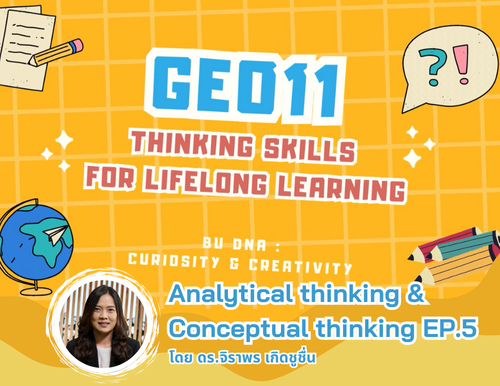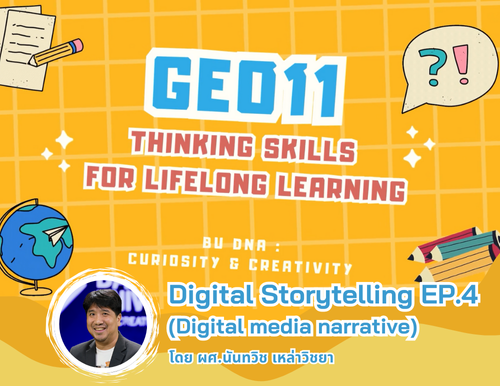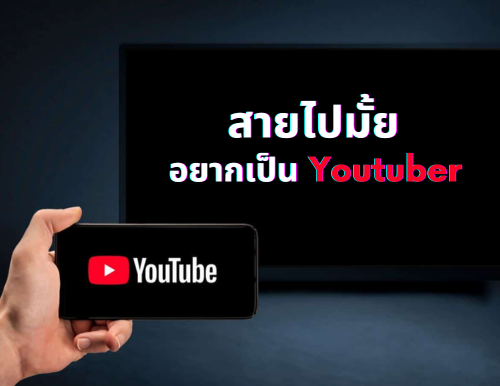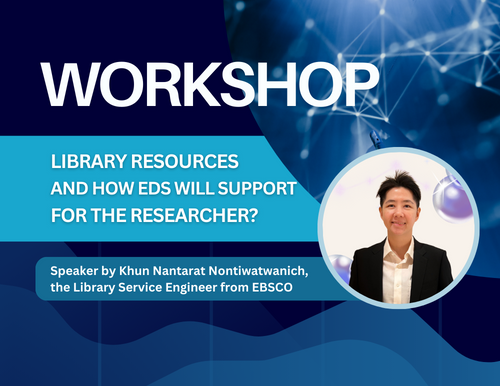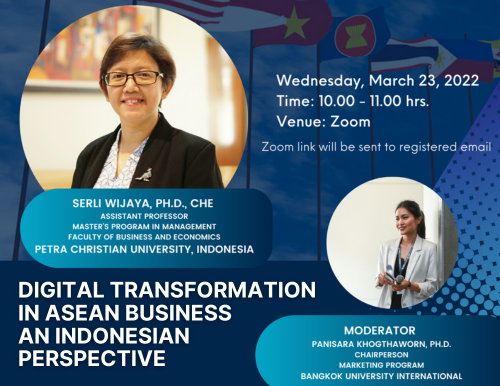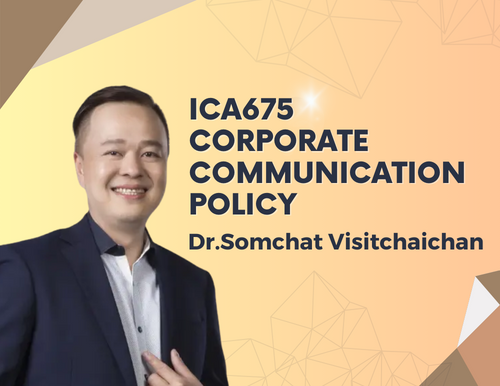The EBSCO database involves searching and accessing high-quality academic articles and research. The steps include targeted searching, reading, downloading, and saving desired articles in the system. Filters and advanced search functions help narrow down results to better match specific needs.
Analytical Thinking และ Conceptual Thinking เป็นทักษะทางความคิดที่สำคัญในหลายด้านของการทำงานและการแก้ปัญหา ทั้งสองทักษะนี้มักจะใช้ร่วมกันในสถานการณ์ที่ซับซ้อน ซึ่ง Analytical Thinking จะช่วยในการทำความเข้าใจและแยกแยะปัญหา ขณะที่ Conceptual Thinking จะช่วยในการมองภาพรวมและหาวิธีการแก้ปัญหาในระดับที่สูงขึ้น โดย ดร.จิราพร เกิดชูชื่น
การเล่าเรื่องผ่านสื่อดิจิทัล Digital Storytelling เช่น วิดีโอ ภาพ เสียง หรือกราฟิก โดยใช้เทคโนโลยีเพื่อสร้างสรรค์และเผยแพร่เรื่องราวออนไลน์ ทำให้ผู้ชมสามารถมีส่วนร่วมและเชื่อมโยงกับเนื้อหาได้มากขึ้น
โดย ผศ.นันทวิช เหล่าวิชยา
การบรรยายเกี่ยวกับการทำอาชีพ Youtuber ให้ประสบความสำเร็จ และให้เข้ากับไลฟ์สไตล์ของคนยุคใหม่กับเจ้าของเพจ Kaykai Salaider และเจ้าของเพจ Dek Jew Chill out
Lao economy, Lao job market & labor law, AEC and labor mobility, demand for talents, get yourself ready and about 108JOB By Keovisouk Dalasane
Lao economy, Lao job market & labor law, AEC and labor mobility, demand for talents, get yourself ready and about 108JOB By Keovisouk Dalasane
Lao economy, Lao job market & labor law, AEC and labor mobility, demand for talents, get yourself ready and about 108JOB By Keovisouk Dalasane
This workshop covers advanced searching and the more sophisticated of databases in the EBSCOhost platform. Library Resources, What is EDS and how it works?, Techniques in “Feature & Setting”, How EDS support the researcher. By Nantarat Nontiwatwanich on January 20, 2024
Special talk session
Digital Transformation in ASEAN Business: An Indonesian Perspective
By Serli Wijaya
Assistant Professor, Master Program in Management, Faculty of Business and Economics, Petra Christain University, Indonesia
on March 23, 2022
Lecture ICA675 Corporate Communication Policy
By Dr.Somchat Visitchaichan
Lecture Date:
Sunday 16 February 2020
1.00 p.m. - 6.30 p.m.
There are 3 parts.

